Lets make an important distinction straight away. The term EV Calculator is often used interchangably to describe 2 very different approaches that attempt to achieve the same goal:
Yes... to a very limited extent! In situations where there is no chance of busting out of the offer then yes, an EV Calculator and EV Simulator will give you a very similar result. For example the following formula could be used to calculate the estimated value of 10 £1 free spins on a slot with a 96% RTP: (10 x £1) x (96 ÷ 100) = £9.60
Let's cross check that with EVCalc:
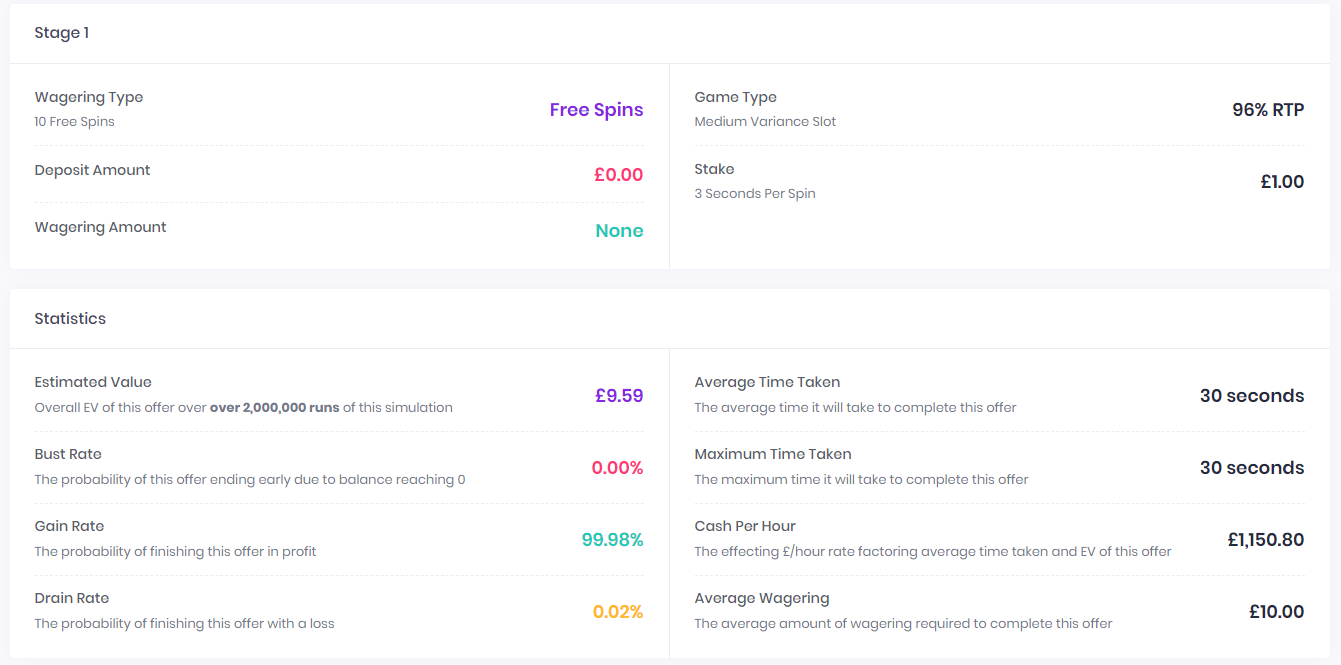
Pretty close! Notice that the EV calculated here is actually a penny shy of the figure predicted above, we actually had to run this EV simulation a few times to intentionally make it close but not exact to demonstrate a point:
The RTP of a slot is calculated over many millions of spins which is a very similar concept to estimated value. The EV of an offer is the theoretical average profit of an offer if played over and over ad infinitum. Although we can usually get in the ballpark of this number within 100,000 simulations of a casino offer and get get very close to this figure with around 1,000,000, its not usually worth the extra time simulating for the sake of a few pence.
Simple, any time there is a chance of not completing an offer because of busting out which is pretty much anything with wagering be it free spins with wagering, a cashable bonus with wagering or anything in between. This is when an EV Calculator will not give the correct results.
This is because to calculate the true EV of an offer you need to know the average wagering required. There is just no way for a simple estimated value calculator to achieve this. Here is an example of a £100 bonus with 30 x wagering (£3000) on a 96% RTP slot:
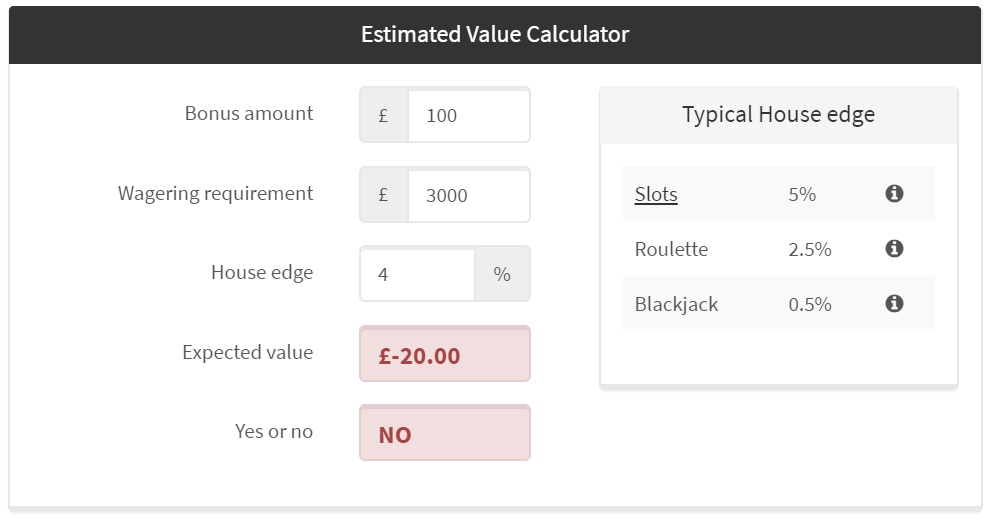
Something isn't right here, the EV of an offer where you are being given a £100 bonus with none of your own money tied in is -£20?
That's because an EV Calculator will use the very standard formula of:EV = Bonus Amount - (Wagering Requirement x House Edge). When the correct formula would be: EV = Bonus Amount – (Average Wagering Completed x House Edge). But as previously mentioned, a traditional EV calculator has no way of figuring out the average wagering.
Lets plug those same figures into EVCalc
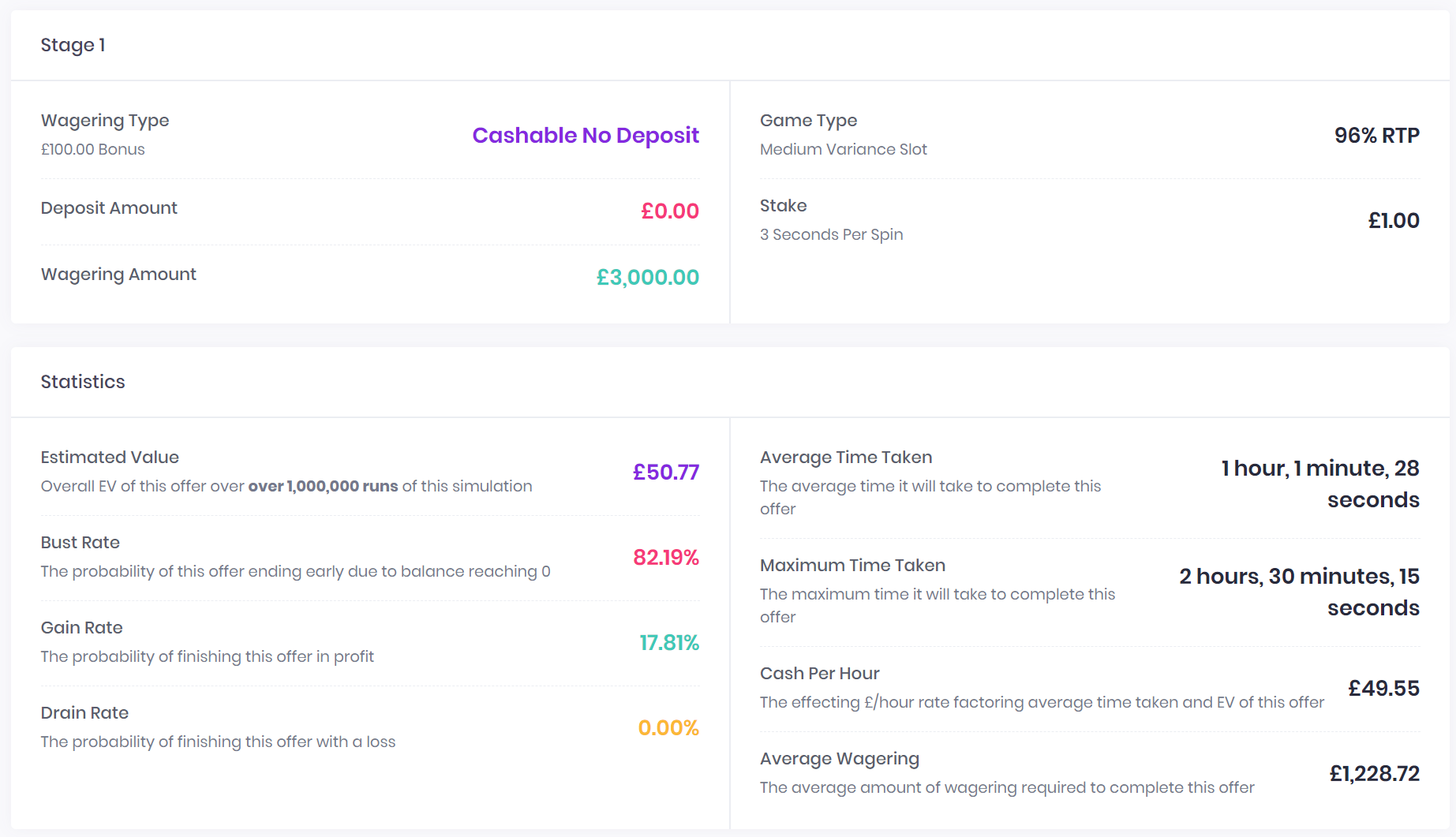
That's a bit better!
One last example just to show how incorrect these calculators can be, this time on an offer giving free spins with wagering requirements on the winnings:
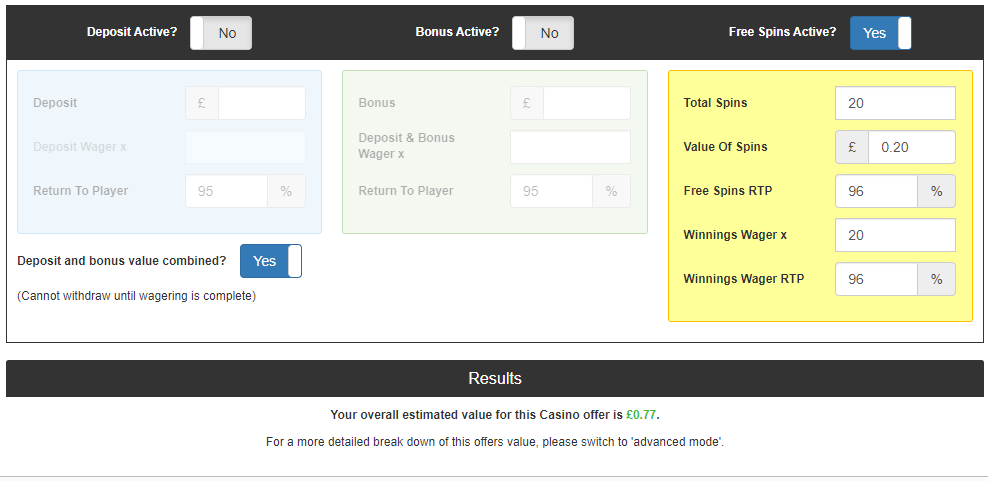
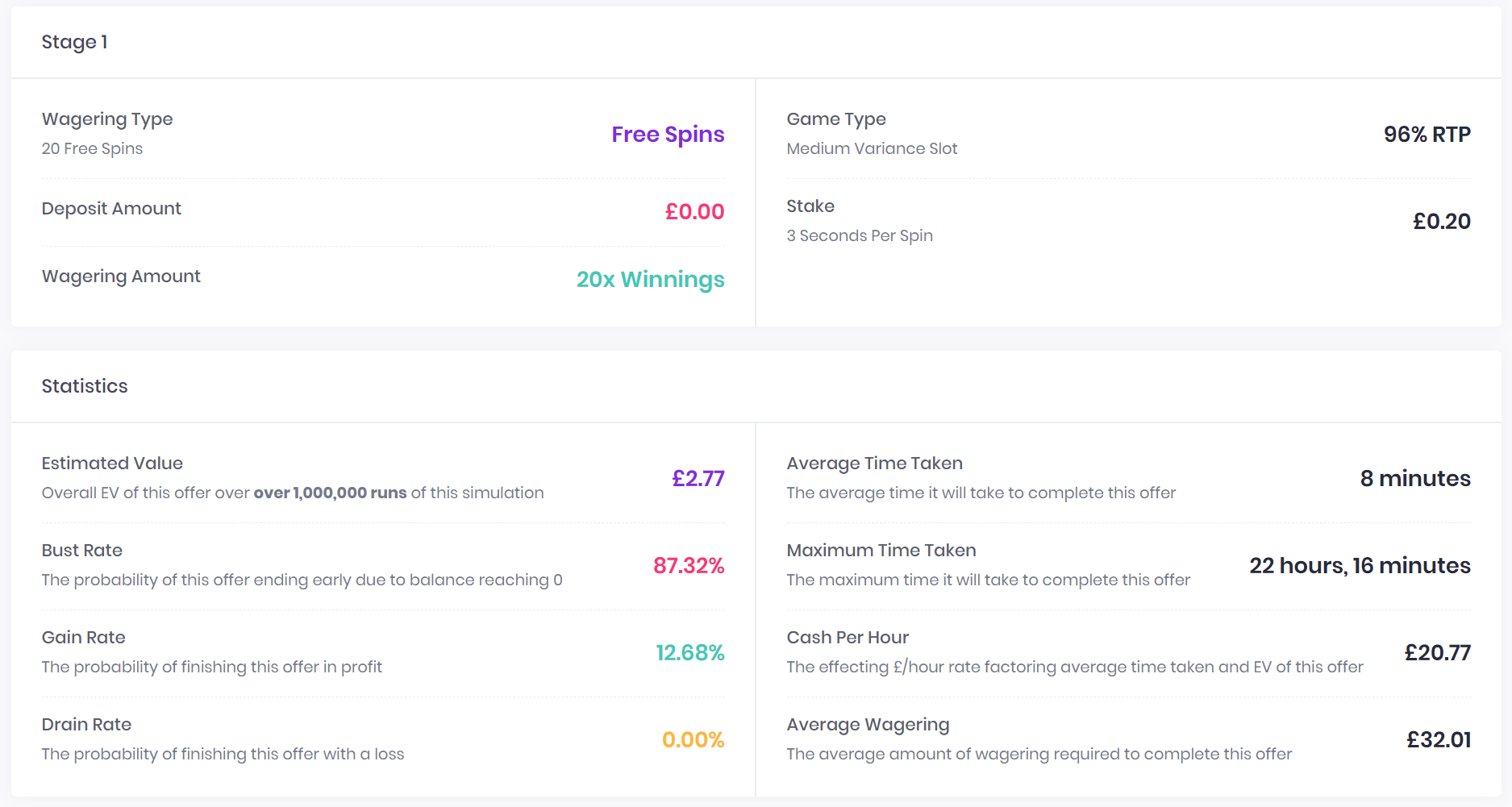
Thats a £2 underestimation by the calculators on what is a fairly common offer! Going from an EV calculator to a simulator will definitely make you see value in offers you didn't before.
Yes! If you clicked any of the links above to view EVCalc statistics then click here, here or here now and just take a look at the amount of information available to you. A calculator will simply give you an EV figure and thats it. Again we would like to reiterate that is all they can do... nothing against them!
Besides the estimated value there are 2 other pieces of information that you should really pay attention to:
This is the percentage of times during the simulation that the offer was finished before wagering completed due to the balance reaching 0. This is essentially the risk you are taking with this offer of finishing with nothing. If this is just free spins with wagering then its not a big deal but if you are talking about a cashable bonus with £100 of your own money on the line then its a whole different thing.
This is the effective hourly rate that you would earn by doing this offer taking into consideration the average time taken (another statistic available to you) and EV. Common advice is to wager with a tiny stake to help get through with less risk which is totally 100% true... you can considerably increase your chance of completing wagering with lower stakes and/or a lower variance slot. The issue comes in the fact that you will make the average time to complete the offer so much longer that you may end up with an effective cash per hour rate which is less than the minimum wage! Next time somebody tells you to do 10p spins on Starburst to get through wagering, politely ignore their recommendation and feel smug in your understanding of this concept.
There is a myriad of information available to you with EVCalc, make sure to take a look
You will be amazed at how much you can affect the EV of an offer by using a slot with a different RTP, higher/lower variance or altering your stake size. For example if doing a cashable bonus offer with a £50 buyin, £50 bonus, 30x wagering you can take the EV from £15.07 doing £1 spins on a medium variance 96% RTP slot to £27.86 if you move to doing £2.50 spins on a high variance slot with the same RTP.
This isn't to say that everybody should rush out and start doing £2.50 spins because it has a knock on effect to other statistics like the bust rate but the value is clear; over £12 higher estimated value from a single offer. Now just imagine you do just 1 of these offers a week... in a year you could be looking at gaining over £600 of EV and as we know, EV directly correlates with profit.
With the inherent advantages apparent to EV Simulators as opposed to EV Calculators we also have the ability to add other conditions and restrictions to our simulations. Ever wondered just how much a winnings cap on free spins or withdrawing early if you hit a big win on a cashable bonus effects EV? EVCalc is able to offer this and much, much more.
If you haven't already, signup now and start using our EV Calculator.